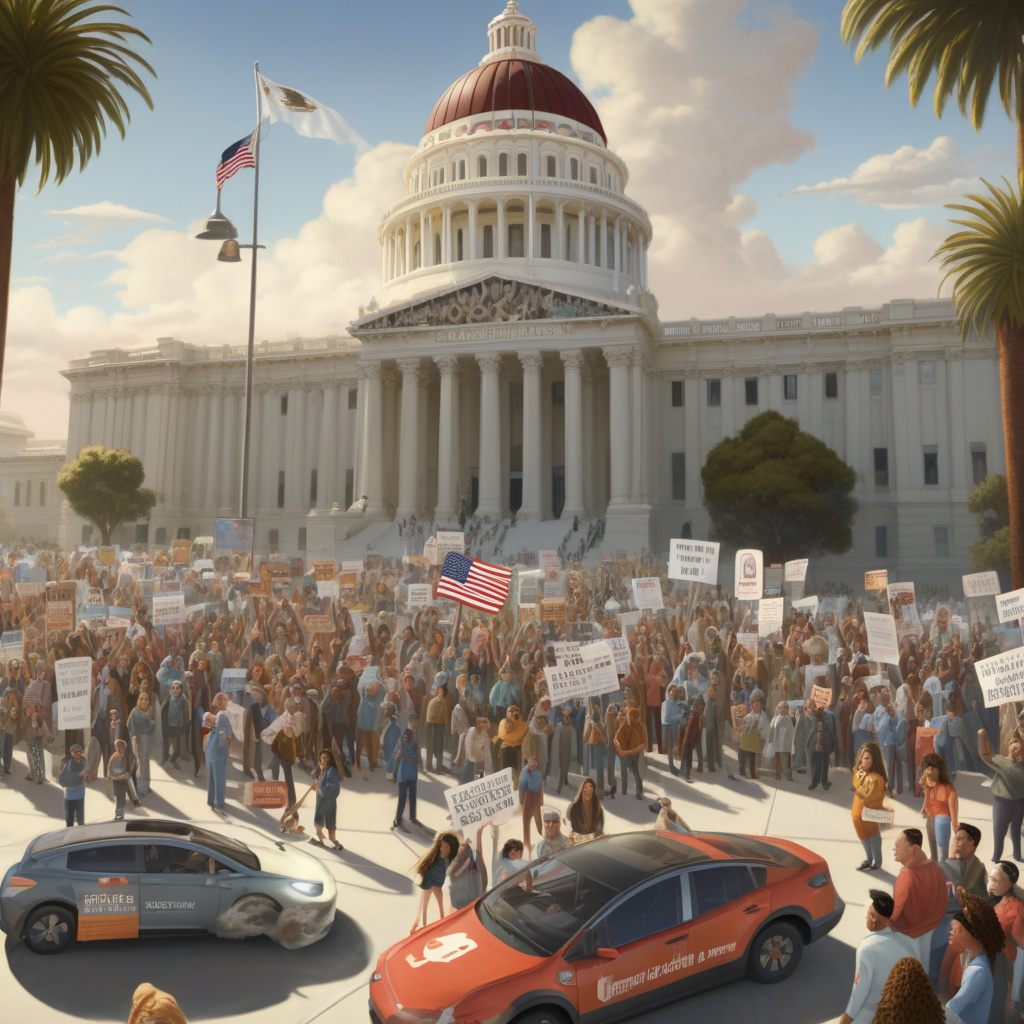Title: California’s Legal Battle Over EV Regulations: A Closer Look
In a recent turn of events, California finds itself at odds with federal authorities after the Senate voted to revoke the state’s authority to set its own emission standards for electric vehicles. This decision comes as a blow to California’s ambitious plans to combat climate change and promote the adoption of zero-emission vehicles.
One of the key initiatives that the state had in place was a requirement for automakers to ramp up the sales of zero-emission cars and passenger trucks starting in 2026. This mandate was a crucial part of California’s efforts to reduce greenhouse gas emissions and transition towards a more sustainable transportation sector.
By setting aggressive targets for the adoption of electric vehicles, California aimed to lead by example and inspire other states to follow suit. The state’s unique position as a trendsetter in environmental policies meant that its regulations often served as a blueprint for the rest of the country.
However, with the Senate’s decision to revoke California’s authority in this matter, the state now faces a legal battle to defend its right to set its own emission standards. This move not only undermines California’s autonomy in addressing climate change but also sets a concerning precedent for other states looking to implement similar regulations.
The clash between California and the federal government underscores the broader debate around states’ rights versus federal authority, particularly in the realm of environmental protection. While the federal government plays a crucial role in setting overarching policies, states like California have historically been at the forefront of driving innovation and progress in sustainability efforts.
At the same time, this conflict raises questions about the future of electric vehicle adoption in the United States. With California’s ambitious targets now in jeopardy, the momentum towards a cleaner transportation sector could be at risk of stalling. This uncertainty not only affects automakers and consumers but also has broader implications for the fight against climate change.
As California prepares to sue the federal government over the revocation of its EV rule, the outcome of this legal battle remains uncertain. The case could have far-reaching implications for environmental regulations, states’ rights, and the future of electric vehicles in the United States.
In conclusion, the clash between California and the federal government over the state’s EV rule highlights the complexities of balancing state autonomy with federal authority in environmental policymaking. California’s ambitious plans to increase the sales of zero-emission vehicles were a significant step towards a more sustainable future, and the state’s legal battle to defend these regulations will be closely watched by industry stakeholders and environmental advocates alike.

